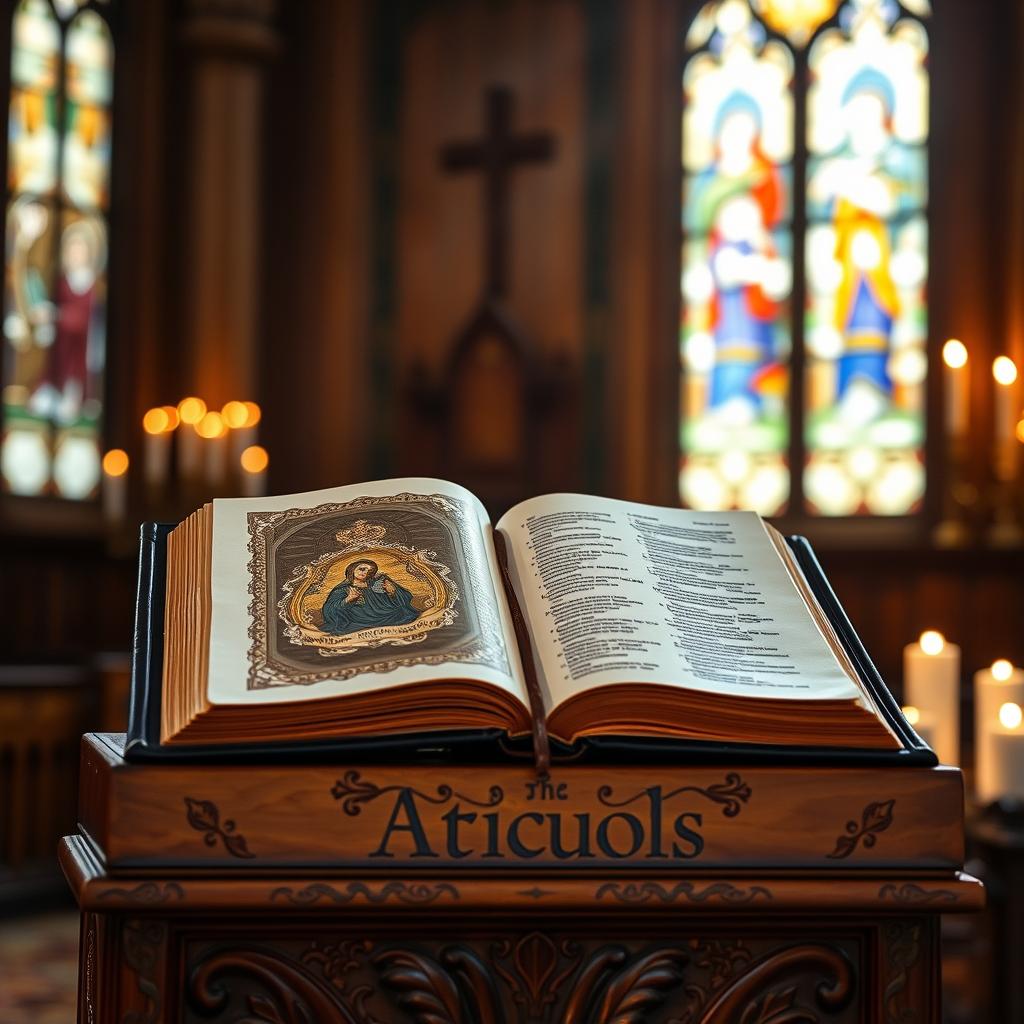The Twenty-second Sunday in Ordinary Time, Cycle C, is a key day in the Catholic calendar. It brings important lessons on humility, hospitality, and the Kingdom of God through Scripture.
The Gospel, Luke 14:1,7-14, teaches us about humility and being welcoming. It asks us to think about how we treat others. It also encourages us to be generous and kind.
The other readings, like Sirach 3:17-18,20,28-29, Psalm 68:4-5,6-7,10-11, and Hebrews 12:18-19,22-24a, add depth to our reflections. Together, they create a rich experience for the day.
The Spiritual Journey Through Ordinary Time
The spiritual journey through Ordinary Time is a path of discovery. The Sunday Mass readings inspire and guide us. This season, a key part of the Catholic calendar, focuses on Jesus Christ’s life and teachings.
The Liturgical Season’s Purpose
Ordinary Time is crucial in the liturgical calendar. It offers a long time to reflect on Christ’s life and values. The Church helps us understand God’s word through Scripture.
Key aspects of Ordinary Time include:
- Systematic reading of Scripture
- Reflection on the life and teachings of Jesus Christ
- Spiritual growth through the Sunday Mass readings
Distinctive Elements of Cycle C
Cycle C of the liturgical calendar focuses on the Gospel of Luke. It gives a unique view of Jesus’ teachings. This cycle shows Christ’s compassion and inclusivity, calling us to humility and hospitality.
The Gospel of Luke offers several key themes:
- The importance of prayer and the role of the Holy Spirit
- The compassion of Jesus towards the marginalized
- The call to radical hospitality and generosity
As we journey through Ordinary Time, Cycle C, we learn more about these themes. We’re called to live them in our daily lives, making our faith more real and vibrant.
Twenty-second Sunday in Ordinary Time, Cycle C: Themes and Overview
The Twenty-second Sunday in Ordinary Time, Cycle C, is filled with deep biblical reflections. It highlights the value of humility. As we move through the liturgical year, this Sunday’s readings tell us why humility is key in our spiritual path.

The Central Message of Humility
The theme of humility is central in the readings for the Twenty-second Sunday in Ordinary Time, Cycle C. The first reading from Sirach tells us that “Pride is odious, and a sinner is a wicked person” (Sirach 3:17). This shows how crucial humility is in our relationship with God and others.
The Gospel reading from Luke 14:1, 7-14 also stresses this point. Jesus teaches about humility and hospitality at a Pharisee’s table. He tells his hosts to “invite the poor, the crippled, the lame, and the blind” (Luke 14:13). This shows the value of being inclusive and charitable.
How This Sunday Fits in the Broader Liturgical Calendar
The Twenty-second Sunday in Ordinary Time, Cycle C, is part of the Church’s ongoing journey through the liturgical year. This Sunday’s readings continue to prepare us for the mysteries of Christ’s life and teachings.
As
“The liturgical year is a journey of faith, a pilgrimage through the mysteries of Christ’s life, death, and resurrection”
, this Sunday’s focus on humility is vital for our spiritual growth. It reminds us to stay grounded in our faith and to cultivate a spirit of service and charity.
The Wisdom of Sirach: First Reading Analysis
The book of Sirach, also known as Ecclesiasticus, gives deep insights into humility and faith. It’s part of the biblical reflections for the Twenty-second Sunday in Ordinary Time, Cycle C. The reading from Sirach 3:17-18, 20, 28-29 is full of wisdom for today’s faith.
Historical Context of Sirach 3:17-18, 20, 28-29
Sirach was written around 180 BCE. It’s a key work in the wisdom literature tradition. The author, Ben Sira, aimed to keep Jewish traditions alive during a time of Hellenistic influence.

The Jewish Understanding of Humility
The passage from Sirach shows the value of humility in Jewish teachings. It teaches that true humility is about knowing our place before God. This idea is key to the Jewish faith and is seen in the catholic lectionary readings.
Key Insights for Contemporary Faith
Sirach’s wisdom is still relevant today, especially in understanding humility. It teaches that humility is essential for spiritual growth. It’s about our relationship with God and others.
Application in American Catholic Communities
In American Catholic communities, Sirach’s teachings can help create a culture of humility and service. This means valuing everyone’s dignity and striving for a more just society.
Personal Dimensions of Wisdom
On a personal level, Sirach’s wisdom calls us to practice humility. This can be done through prayer, reflection, and helping others. By being humble, we invite God’s grace into our lives, as seen in the sunday mass readings.
God’s Care for the Vulnerable: Exploring Psalm 68:4-5, 6-7, 10-11
On the Twenty-second Sunday in Ordinary Time, Cycle C, we focus on Psalm 68. This Psalm celebrates God’s love for the weak. It shows God’s protection for those who are often ignored.

Structure and Background of the Psalm
Psalm 68 is from David and is a key hymn. It mixes different themes and images to honor God’s power and kindness. It might have been used when the Ark was brought to Jerusalem.
The Psalm’s roots are in Israel’s history. It talks about God’s mighty actions for His people. It shows God as a protector and provider.
God as Father of Orphans and Defender of Widows
Psalm 68 highlights God’s special care for orphans and widows. It calls God the Father of orphans and Defender of widows. This shows God’s justice and kindness.
This idea is found throughout the Bible. It shows God’s love for those often ignored. It encourages us to care for these groups like God does.
Connecting Ancient Praise to Modern Worship
The themes of Psalm 68 are still important today. It encourages us to praise God for His ongoing care. It also urges us to show this care in our communities.
Reflecting on Psalm 68 during the Twenty-second Sunday in Ordinary Time, Cycle C, is meaningful. It reminds us of the value of biblical reflections. They help us deepen our faith and live more compassionately.
The Heavenly Jerusalem: Unpacking Hebrews 12:18-19, 22-24a
The passage from Hebrews 12:18-19, 22-24a shows a big difference between the earthly and heavenly worlds. This difference is key to understanding the Letter to the Hebrews and its meaning for Christian faith.

The Letter to the Hebrews in Context
The Letter to the Hebrews is a special document in the New Testament. It deeply explores the nature of Christ and the Church. It was written to a community facing hard times, urging them to stay strong in their faith.
The exact writer and date of the letter are unknown. But its themes of faith, perseverance, and Christ’s superiority are clear.
The letter was likely written in the late 1st century AD. At that time, the early Christian community was figuring out the old and new covenants.
Two Mountains: Sinai and Zion
The passage contrasts two mountains: Sinai and Zion. Sinai stands for the old covenant, with fear, darkness, and law. Zion, on the other hand, represents joy, light, and Christ’s grace.
This contrast shows the move from the old covenant to the new one in Christ. The author of Hebrews says believers have reached Mount Zion, the city of the living God, the heavenly Jerusalem, where Jesus mediates a new covenant.
The New Covenant Community
The New Covenant Community is central to the Hebrews’ message. This community believes in Jesus Christ and joins the heavenly Jerusalem. The author encourages believers to approach God confidently, thanks to Jesus’ sacrifice.
Implications for Church Identity Today
The New Covenant Community’s idea has big implications for church identity today. It tells believers their identity comes from their relationship with Christ and joining the heavenly Jerusalem.
In practical terms, this means the Church should show the values of the heavenly Jerusalem. These values include love, compassion, and humility. Showing these values is key for the Church’s mission and its witness to the world.
The Communion of Saints in American Catholic Tradition
The Communion of Saints is a big part of Catholic tradition. It shows the unity of all believers, both living and dead. In the American Catholic context, this tradition is celebrated through various devotions and practices.
The reading from Hebrews highlights the importance of this communion. It shows believers’ part in the heavenly Jerusalem. It encourages Catholics to understand their connection to the Church, both on earth and in heaven.
Jesus at the Pharisee’s Table: The Gospel of Luke 14:1, 7-14
Today’s Gospel reading from Luke shows Jesus teaching about humility and hospitality. He is at a Pharisee’s table, where he heals on the Sabbath. He also challenges the usual ways of dining and social status.

The Social Context of Ancient Middle Eastern Dining
Dining in ancient Middle Eastern culture was more than just eating. It was about honor, status, and giving back. The seating, guests, and food showed one’s social level. Jesus knew this and taught a lesson on true hospitality.
The Pharisees followed Jewish law closely but often disagreed with Jesus. By eating at the Pharisee’s, Jesus interacted with their culture but also challenged their views.
The Parable of the Wedding Feast
Jesus tells a parable about a wedding feast. Guests are invited but make excuses and don’t come. The host then invites the poor, the crippled, the blind, and the lame. This parable changes how we see honor and status.
The message is clear: the kingdom of God welcomes everyone, especially those who can’t repay kindness.
Christ’s Revolutionary Teaching on Hospitality
Jesus’ teaching on hospitality is groundbreaking. It challenges old social norms. He says true honor comes from honoring others, especially the marginalized.
The Challenge to Status and Honor
In the ancient world, status and honor were key. Jesus flips this by saying the last will be first. He calls us to rethink our values and priorities.
Inviting Those Who Cannot Repay
Jesus teaches us to invite the poor, the crippled, the lame, and the blind to our banquets. This is not just charity. It’s about seeing the dignity in every person.
| Traditional Values | Jesus’ Teaching |
|---|---|
| Honor is received from others based on status. | True honor is shown by humbling oneself and serving others. |
| Hospitality is about reciprocity. | Hospitality is about serving those who cannot repay. |
Reflecting on Jesus’ teachings at the Pharisee’s table, we’re called to a more inclusive and compassionate hospitality. This Sunday’s Gospel reading asks us to rethink our values and live out our faith in meaningful ways.
The Unified Message: Connecting All Readings
On the Twenty-second Sunday in Ordinary Time, Cycle C, the Catholic lectionary shows a unified theme. This theme is woven through the texts, creating a rich narrative that touches our faith’s heart.
Humility as the Golden Thread
The readings for this Sunday focus on humility. In the first reading from Sirach, we learn that “the greatest favor is to be shown to the humble.” This idea of humility is also seen in Luke’s Gospel, where Jesus teaches about radical hospitality and not seeking honor.
The Psalm also talks about God’s care for the vulnerable, showing divine preference for the humble and the lowly. This is mirrored in the reading from Hebrews, which reminds us of the heavenly Jerusalem and the call to approach God with reverence and humility.

Divine Reversal in God’s Kingdom
A common theme in the readings is divine reversal. In Luke’s Gospel, Jesus tells a parable about a wedding feast. The invited guests are replaced by those from the margins. This story shows the upside-down values of God’s Kingdom, where the last are first, and the humble are exalted.
This idea of reversal is also in the Psalm, where God is praised for defending the rights of the needy. It’s a powerful reminder that in God’s Kingdom, values are different from this world. As we reflect on these readings, we’re called to embrace radical humility and to welcome all, especially those who are marginalized or overlooked.
As we move through the liturgical calendar, the readings for the Twenty-second Sunday in Ordinary Time, Cycle C, invite us to deepen our understanding of biblical reflections. They encourage us to live our faith with authenticity and compassion.
Practical Applications for American Catholics Today
Exploring the Twenty-second Sunday in Ordinary Time, Cycle C, invites us to live more humbly and hospitably. The readings urge American Catholics to embrace true humility and radical hospitality in everyday life.

Cultivating True Humility in a Self-Promoting Culture
In a world that loves self-promotion, humility stands out. The readings for this Sunday highlight its importance in Christian living. To grow in humility, American Catholics can:
- Practice active listening, giving others their full attention
- Engage in acts of service without seeking recognition
- Reflect on the Beatitudes, embracing the blessedness of humility
Radical Hospitality in American Parishes
The Gospel of Luke urges us to welcome everyone, not just those we know. American Catholic parishes can show radical hospitality by:
- Creating welcoming environments that reflect community diversity
- Developing outreach programs for the homeless, the elderly, and vulnerable
- Fostering a culture of inclusion, where all feel valued and respected
Social Justice Implications
Humility and hospitality have big social justice meanings. By embracing these virtues, American Catholics can help build a more just and compassionate world. This means supporting policies for the vulnerable and standing with the marginalized.
By living these values, American Catholics can be a source of hope and love. They reflect God’s kingdom values in their communities.
Homily Suggestions for Clergy and Lay Leaders
The readings for the Twenty-second Sunday in Ordinary Time, Cycle C, give clergy and lay leaders a chance to talk about the Kingdom of God’s values. These values are different from what we see in the world today.

Addressing the Paradox of Humility
When making homilies, clergy and lay leaders can dive into the idea of humility. The book of Sirach says true greatness comes from being humble, not from trying to be the center of attention. This idea is also in the Gospel of Luke, where Jesus talks about being humble, especially when we’re with others.
Illustrative Stories from American Catholic Experience
Clergy can use stories from American Catholic history to make these teachings real. For example, Dorothy Day’s life of radical hospitality and humility is inspiring. These stories help people see how to live out the teachings in their own lives.
Connecting Scripture to Contemporary Challenges
Clergy and lay leaders can also show how these teachings apply to today’s problems. For instance, in a world that loves to brag about itself, humility is a rare and important value. By linking the Bible’s message to our daily lives, homilies can encourage people to live their faith in meaningful ways.
| Scriptural Theme | Contemporary Challenge | Homily Suggestion |
|---|---|---|
| Humility | Self-promotion culture | Discuss the value of humility in a society that often prioritizes self-promotion. |
| Hospitality | Increasing division | Explore ways to practice radical hospitality in a divided world. |
| Divine Reversal | Social inequality | Reflect on how God’s kingdom values contrast with worldly values. |
Prayer and Reflection Resources
Living the Kingdom of God means being humble and showing radical hospitality. These values are key in this Sunday’s catholic lectionary. As we dive into the sunday mass readings, we’re called to grow our faith. We’re asked to live out Christ’s teachings every day through biblical reflections.
Personal Examination on Pride and Humility
Reflect on your life and where pride might be stopping you from being humble. Ask yourself:
- How do I react when others get praise or recognition?
- How can I show a more humble spirit in my daily life?
This self-reflection can help you live your faith more genuinely, in line with the sunday mass readings.
Family Discussion Questions
Start a deep conversation with your family about the Sunday readings. Ask these questions:
- What does it mean to be a guest at the Lord’s table? How can we show radical hospitality to others?
- How can our family become more humble and serve others in our community?
Talking about these topics can help your family understand the scripture better and how to apply it in everyday life.
Guided Meditation on Luke’s Gospel
Find a quiet spot to think about Luke’s Gospel. Focus on Jesus’ lessons on humility and hospitality. Think about:
“When you give a lunch or a dinner, do not invite your friends or your brothers or your relatives or rich neighbors… Instead, invite the poor, the crippled, the lame, and the blind.”
Think about how you can follow this teaching. Maybe by helping those in need or by being more welcoming in your social events.

Daily Practices for the Coming Week
As we enter the next week, the readings from the Twenty-second Sunday in Ordinary Time, Cycle C, urge us to act. They call for daily practices of humility and hospitality. The catholic lectionary is a rich guide for our spiritual path, helping us understand God’s will.

Monday-Wednesday: Cultivating Personal Humility
To grow in personal humility, start with simple daily habits. Here are a few ideas:
- Start each day with a prayer for humility.
- Listen actively, without interrupting others.
- Do a task without wanting praise.
Thursday-Sunday: Extending Radical Hospitality
For the rest of the week, we’re called to show radical hospitality. Here’s how:
Simple Acts of Service
- Help a neighbor with their groceries.
- Visit a nursing home and talk with the residents.
- Smile and greet people, making them feel valued.
Creating Space for the Marginalized
- Speak up for those often ignored.
- Make our homes and communities welcoming.
- Listen to the stories of the unheard.
By adding these practices to our lives, we can live out our faith. Reflecting on the sunday mass readings and homily suggestions from the Twenty-second Sunday in Ordinary Time, Cycle C, let’s aim to be examples of humility and hospitality.
The Liturgical Arts: Music and Visual Elements
The liturgical calendar invites us to enrich our worship with music and visual elements. This is especially true on the Twenty-second Sunday in Ordinary Time, Cycle C. The Sunday’s readings from the Catholic lectionary offer a rich tapestry of themes. These can be beautifully enhanced through liturgical arts.
Hymn Suggestions Reflecting the Readings
Choosing hymns that reflect the Sunday Mass readings can deepen our worship. For the Twenty-second Sunday in Ordinary Time, Cycle C, consider hymns that emphasize humility and hospitality. Hymns like “Come to Me, All You Who Labor” or “One Bread, One Body” are good choices. They echo the Gospel message from Luke, where Jesus teaches about humility and invites all to the heavenly banquet.

Visual Symbols and Environment
The visual environment of our churches can also be tailored to reflect the themes of the day. Using symbols and colors that evoke the sense of a heavenly banquet can enhance the liturgical experience. Consider incorporating images or icons that depict the Kingdom of God as a feast, where all are welcome.
As Pope Francis reminds us, “The Eucharist is not a reward for the perfect, but a gift for the weak to become strong.” This can be a powerful visual message. It encourages inclusivity and radical hospitality.
“The Eucharist is not a reward for the perfect, but a gift for the weak to become strong.” – Pope Francis
Embracing the Kingdom’s Upside-Down Values
The readings for the Twenty-second Sunday in Ordinary Time, Cycle C, show us God’s Kingdom values. They challenge us to see status and honor in a new light. This makes us rethink what’s truly important.
In the Catholic lectionary, humility is a big theme. It invites us to be radical in our care for others. The Gospel of Luke teaches us to seek the lowest place, not to seek fame.
Living these values means being humble and serving others. It’s about putting others first, not ourselves. By doing this, we share the biblical message of hope and love.
Escape the Cycle of Reincarnation: Your Guide





